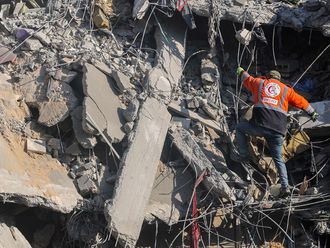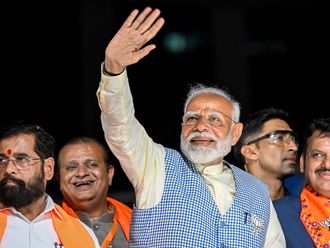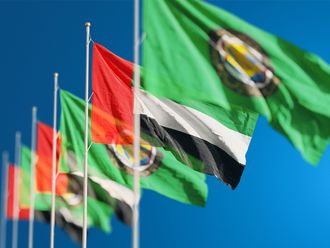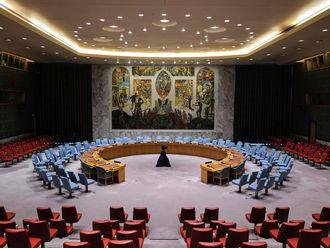There are many today who are critical of the highly-acclaimed inter-faith dialogue forums being sponsored at the state level in various parts of the world. Critics argue that these forums have simply become a gathering place for representatives of various religions and faiths who meet, nod their heads or indulge in yawning during long sessions and then return to their homes without anything of substance being achieved that would help foster better understanding between the faiths. A lot of money and publicity is spent on these symposiums and yet the cycle of suspicion and mistrust continues in many parts of the world. While the original concept of bringing people from various faiths to a discussion table was a good one, detractors charge that what is talked about and agreed to at such events is hardly ever put into action.
There are individuals, on the other hand, not encumbered by the heralded inter-faith forums, who actually make a difference. In Aberdeen, Scotland, one such recent show of reverence to other faiths should have made people sit up and take note that such good things can indeed happen — and not necessarily through forums or symposiums.
A Christian church became the first of its kind in the UK to share its premises with people of a different faith. St John’s Episcopal Church opened its doors to Muslims. It now welcomes hundreds of Muslims who perform their obligatory prayers five times a day inside the church building as the nearby mosque is too small to handle the congregation, forcing many to pray outside often in extreme elements.
Rev. Isaac Poobalan, who is the minister of St Johns Church, offered a part of the church hall to the Imam of Shah Mustafa Jam’i Masjid mosque, who soon led his Muslim congregation to prayers in the main chapel.
In explaining his decision, Rev. Poobalan said he would not be a true and faithful Christian if he did not offer to help his neighbouring worshippers with their lack of space for worship. He said: “Praying is never wrong. My job is to encourage people to pray. The mosque was so full at times, there would be people outside in the wind and rain praying. I knew I couldn’t just let this happen — because I would be abandoning what the Bible teaches us about how we should treat our neighbours.”
These sights prompted him to act, although there was some resistance from a few of the churchgoers. “When I spoke to people at the church about the situation, someone actually said to me this was not our problem, but I had seen it with my own eyes, so it was a problem. They were out there praying and the snow came on for the first time in the winter. It was really hard to watch. When they were praying, they had their hands and feet exposed and they were sitting on the pavement, which is very rough. You could even see them breathing because it was so cold and I think when I saw that, the visual impact was such that I just couldn’t walk past.”
The Reverend continued: “It felt wrong, mainly because the church is next door, it’s a big building and it remains empty on a Friday at lunchtime, which is when they need the place the most as that’s when they are at their busiest. We had something we could offer and they were just standing out in the cold and I said to my congregation — we need to do something!”
Reverend Poobalan was also keen to foster better understanding between Christians and Muslims in the neighbourhood. He said: “It’s a move that is so basic and fundamental. It has nothing to do with religion — it’s all based on human need. The religious divide shouldn’t divide us as people. However, I anticipated there would be some opposition as it was strange and new and there was some natural anxiety in the beginning. But once people realised that there was more commonality between us, their anxiety slowly dissipated.”
He concludes: “I certainly hope, wish and pray that this will help relations between the two religions. When I spoke to the Imam, there was some hesitation on their part too, because this had never been done before. But they took us up on the offer and it has been a positive relationship.”
The Imam of the mosque, Shaikh Ahmad Magharbi said: “What happens here is special and there should be no problem repeating this across the country. The relationship is friendly and respectful.”
The Bishop of Aberdeen and Orkney, Dr Robert Gillies, added: “It would be good to think we can change the world. Most of us most of the time feel we can’t so don’t bother. But sometimes, someone has a vision we can do something of global significance on a local scale. This is what is happening between St John’s and the mosque in its grounds. Everyone can do something locally and if more were to do so then something big might just begin to happen globally.”
It was such a brave individual step in a Scottish city and devoid of much of the fanfare that accompanies state-sponsored inter-faith forums! It is such acts by persons of various faiths that will most certainly help heal the rift widened by misunderstanding and suspicion. God bless Reverend Isaac Poobalan.
Tariq A. Al Maeena is a Saudi socio-political commentator. He lives in Jeddah, Saudi Arabia. You can follow him at www.twitter.com/@talmaeena












